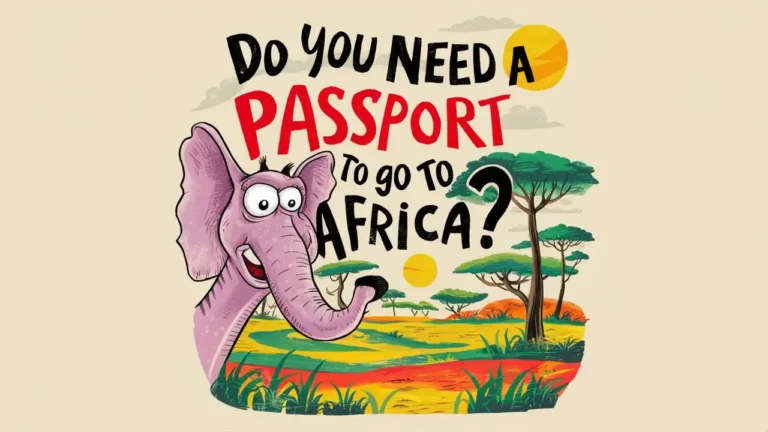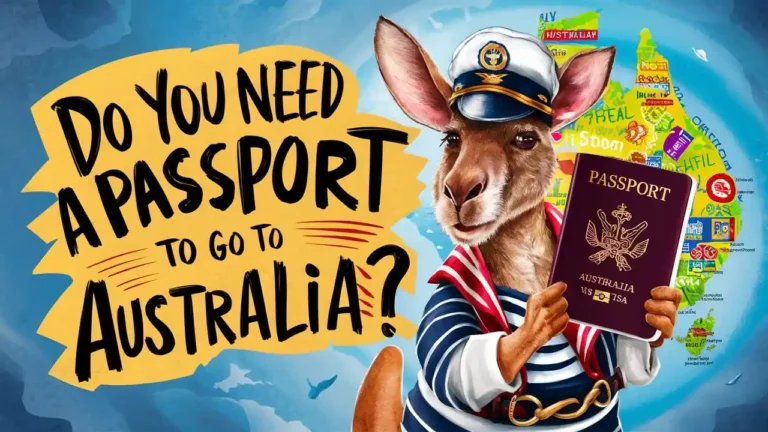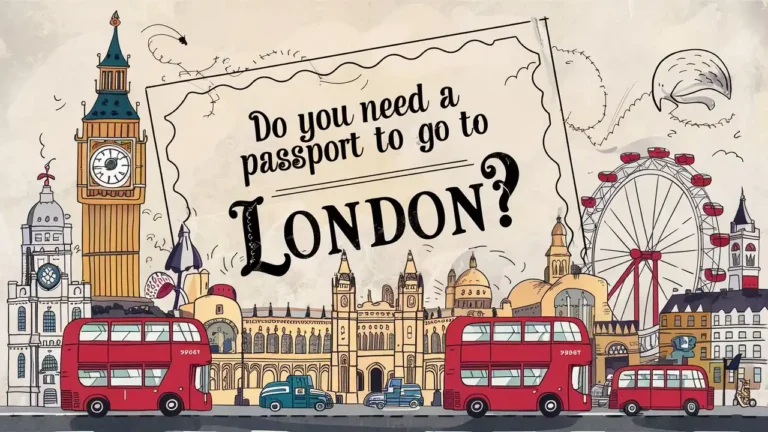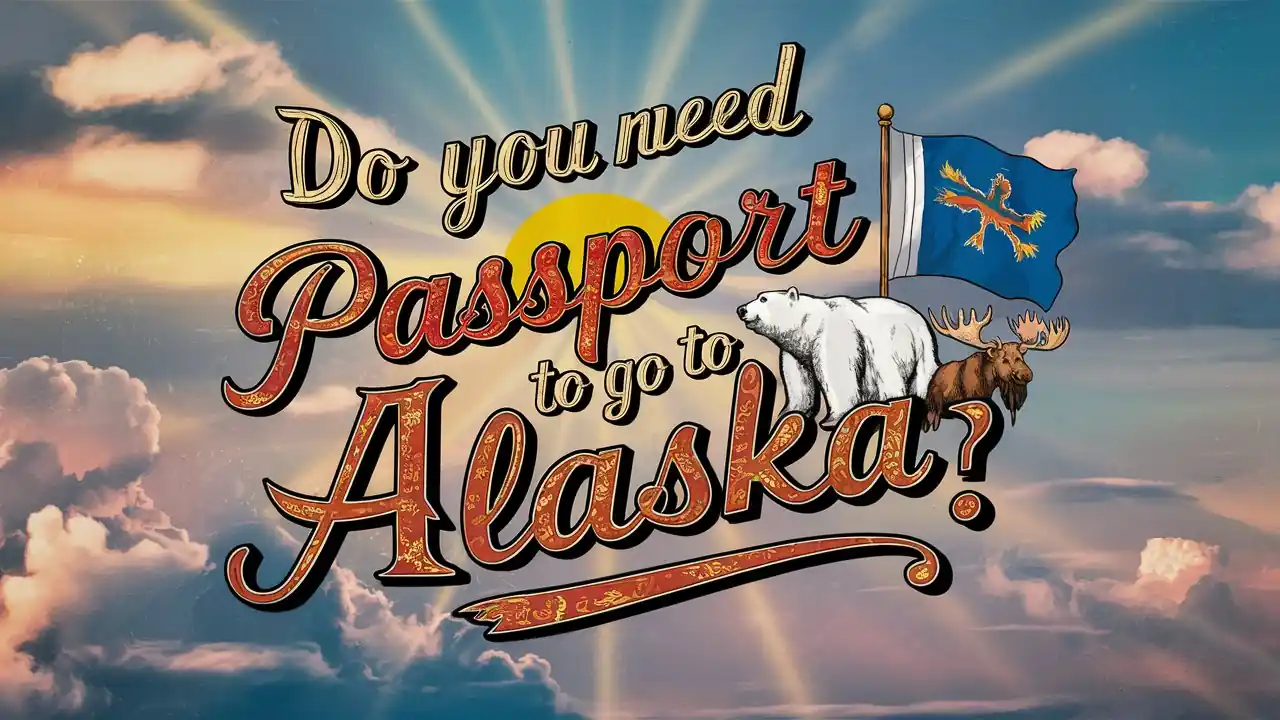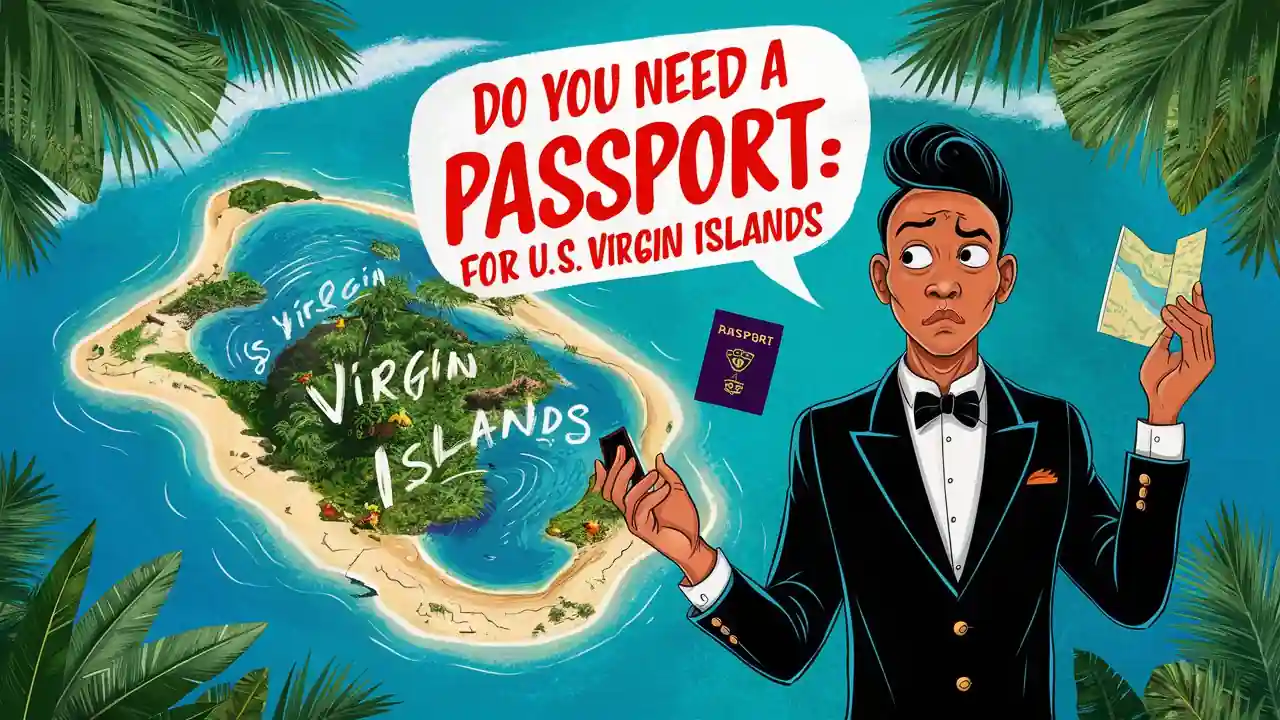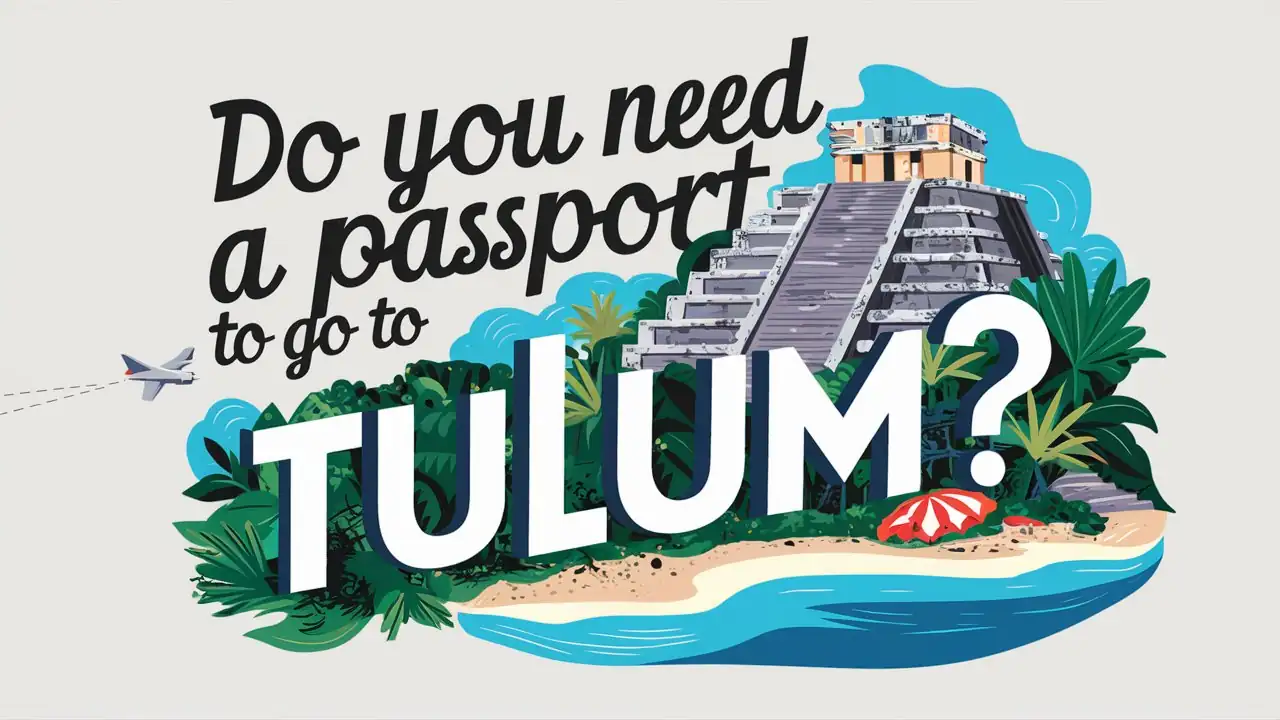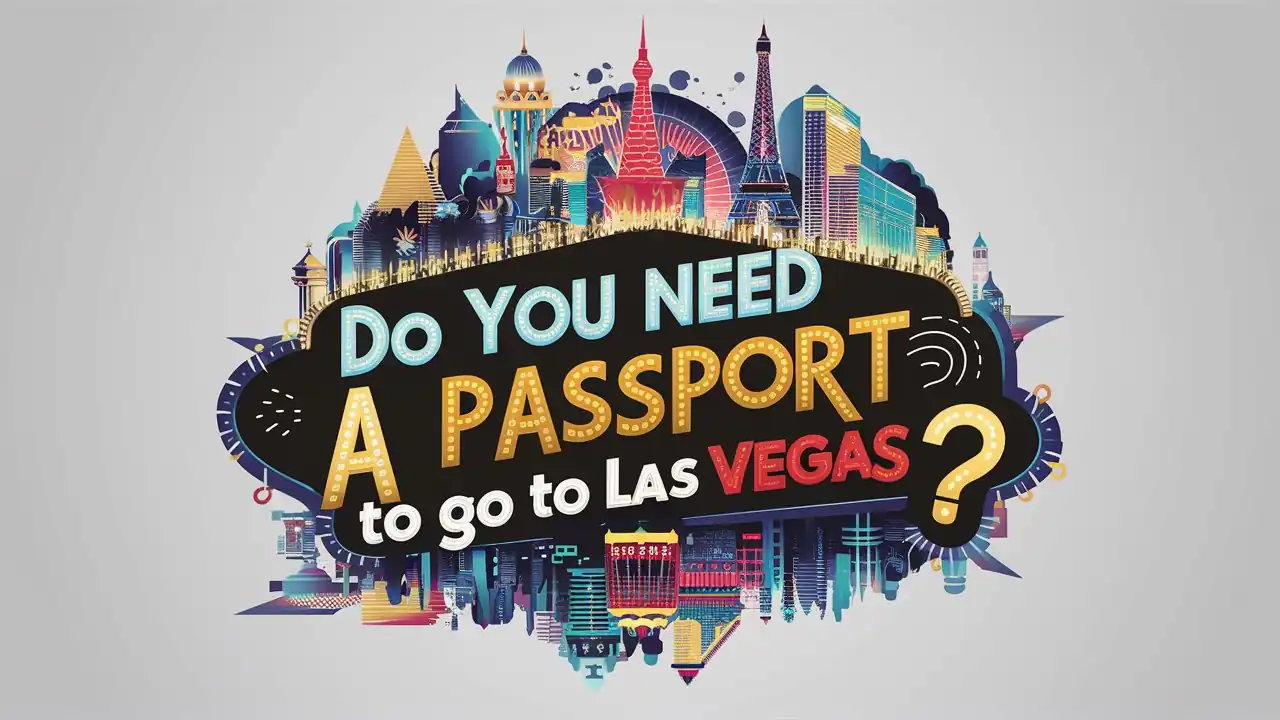Do You Need a Passport to go to Iceland? (2024)
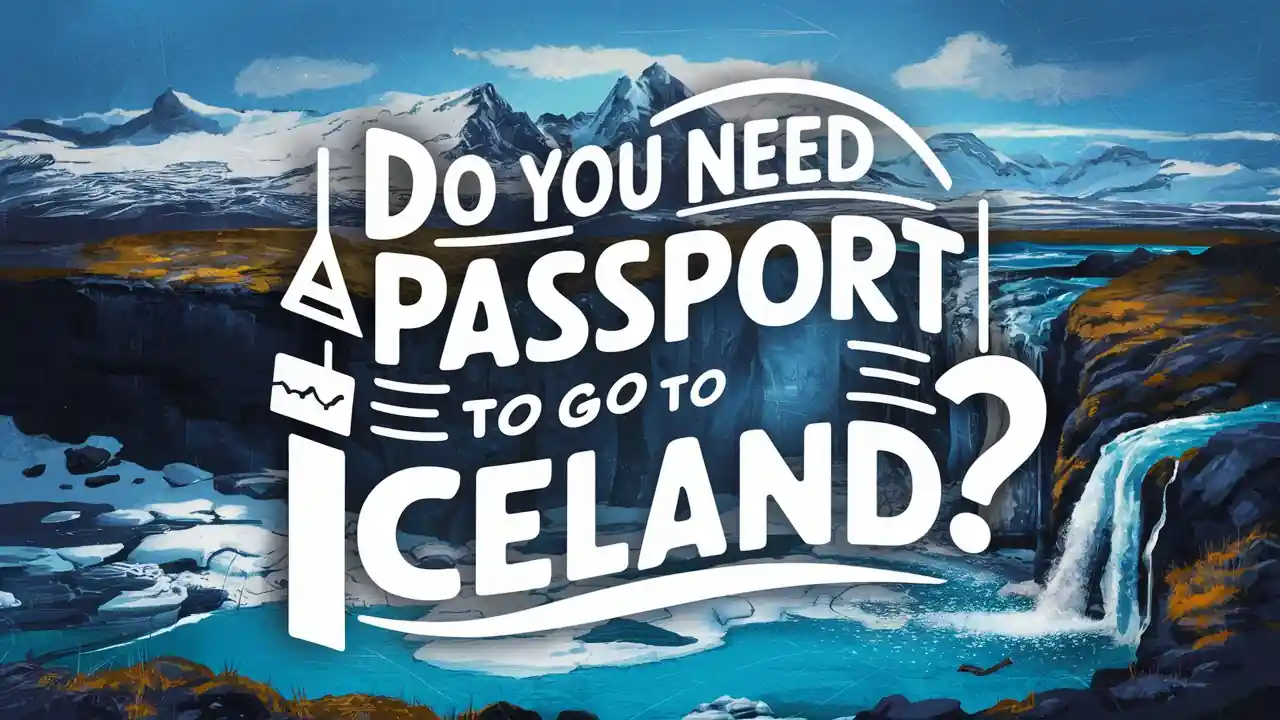
Introduction
As you plan your Iceland getaway, one crucial question arises: Do you need a passport to go to Iceland? Let’s start with a quick Introduction.
Iceland, a land of fire and ice, beckons travelers with its otherworldly landscapes, stunning natural phenomena, and rich Nordic culture. From the ethereal beauty of the Northern Lights to the raw power of geothermal geysers and the serene blue waters of the Blue Lagoon, Iceland offers a unique and unforgettable travel experience. As you plan your journey to this captivating island nation, one of the most crucial aspects to consider is the documentation required for entry.
Understanding the passport and visa requirements for Iceland is essential for a smooth and stress-free travel experience. Whether you’re dreaming of exploring the vibrant streets of Reykjavik, hiking across ancient glaciers, or soaking in natural hot springs under the midnight sun, knowing the entry regulations will help you focus on creating unforgettable memories rather than worrying about paperwork. In this comprehensive guide, we’ll delve into the passport requirements for traveling to Iceland, ensuring you have all the information you need to embark on your Icelandic adventure with confidence.
Do You Need a Passport for Iceland?
Iceland, with its stunning landscapes and unique culture, is a popular destination for travelers worldwide. However, before you can experience the breathtaking waterfalls, geothermal spas, and the mesmerizing Northern Lights, it’s crucial to understand the entry requirements, particularly regarding passports.
For U.S. Citizens:
- U.S. citizens must have a valid passport to enter Iceland.
- The passport must be valid for at least three months beyond your planned date of departure from the Schengen area.
- No visa is required for tourist or business stays of up to 90 days within a 180-day period.
For Non-U.S. Citizens:
- All non-U.S. citizens must have a valid passport to enter Iceland.
- The passport should be valid for at least three months beyond the intended stay.
- Visa requirements vary depending on nationality. Many countries have visa-free access to the Schengen area, which includes Iceland.
- Check with the Icelandic Directorate of Immigration for specific requirements based on your nationality.
Traveling by Land or Sea (For U.S. Citizens):
- There is no land border to Iceland, as it is an island nation.
- U.S. citizens arriving by sea (such as on a cruise ship) must still present a valid passport when entering Iceland.
Traveling by Land or Sea (For Non-U.S. Citizens):
- All non-U.S. citizens must present a valid passport when arriving in Iceland by sea.
- Visa requirements apply as they would for air travel.
Children Under 16:
- All children, regardless of age, must have their own valid passport to enter Iceland.
- There are no exceptions for minors traveling with parents or guardians.
- Visa requirements for children are the same as for adults.
Closed-Loop Cruises:
- Even for closed-loop cruises, passengers are required to have a valid passport to enter Iceland.
- Iceland’s entry requirements apply regardless of the cruise itinerary.
Who Does Not Need a Passport for Iceland?:
- Citizens of Nordic countries (Denmark, Finland, Sweden, and Norway) can enter Iceland without a passport, using only a valid national ID card.
- However, having a passport is still recommended for potential travel to other countries.
For Locals:
- Icelandic citizens do not need a passport to re-enter Iceland if they are traveling from another Nordic country.
- However, Icelandic citizens will need a valid passport for international travel to non-Nordic countries.
- For travel within the Schengen area, Icelandic citizens can use their national ID card.
Remember, while this information is generally accurate, entry requirements can change. It’s always best to check with the Icelandic Directorate of Immigration or your country’s embassy for the most up-to-date information before planning your trip to Iceland.
Do You Need a Visa to go to Iceland?
Iceland, a Nordic island nation known for its stunning landscapes, geothermal features, and vibrant culture, has become an increasingly popular tourist destination. As you plan your Icelandic adventure, understanding the visa requirements is crucial to ensure a smooth entry into this captivating country. This article outlines the visa needs for various groups of travelers heading to Iceland, helping you prepare effectively for your northern expedition.
For U.S. Citizens:
- U.S. citizens do not need a visa for short-term stays (up to 90 days) in Iceland.
- A valid U.S. passport with at least three months validity beyond the intended stay is required.
- No additional travel documents are necessary for tourism or business visits.
For European Union (EU) and European Economic Area (EEA) Citizens:
- Citizens of EU and EEA countries do not need a visa to enter Iceland.
- They can stay and work in Iceland without restrictions.
- A valid national ID card or passport is sufficient for entry.
For Non-EU/EEA Citizens:
- Visa requirements vary depending on nationality, purpose, and length of stay.
- Many countries are part of the Schengen Agreement, allowing visa-free travel to Iceland for up to 90 days within a 180-day period.
- Countries not in the Schengen area may require a Schengen visa to visit Iceland.
Schengen Visa:
- Iceland is part of the Schengen Area, which includes 26 European countries.
- A Schengen visa allows entry to Iceland and travel within the Schengen zone.
- Applicants must apply at the embassy or consulate of the main destination country or the first point of entry.
Long-Term Stay Visas:
- For stays longer than 90 days, a residence permit is typically required.
- This applies to work, study, or long-term tourism purposes.
- Applications are processed through the Directorate of Immigration in Iceland.
Work Visas:
- Non-EEA citizens generally need a work permit to be employed in Iceland.
- Different types of work permits exist, depending on the nature and duration of employment.
- Employers often initiate the work permit application process.
Student Visas:
- International students from non-EEA countries need a residence permit for study purposes.
- Acceptance to an Icelandic educational institution is required before applying.
- Proof of sufficient funds and health insurance are typically necessary.
Visa Exemptions:
- Some countries have bilateral agreements with Iceland, allowing visa-free entry for specific durations.
- Always check the most current list of visa-exempt countries before planning your trip.
It’s important to note that visa and entry requirements can change. Always verify the most up-to-date information with official sources such as the Directorate of Immigration in Iceland or your nearest Icelandic embassy or consulate before planning your trip. Additionally, even if you don’t need a visa, you may need to meet other entry requirements, such as having a return ticket or sufficient funds for your stay.
Why Visit Iceland? Let Me Tell You!
Iceland, often called the Land of Fire and Ice, is a destination that captivates travelers with its otherworldly landscapes and unique natural phenomena. This Nordic island nation offers an unparalleled blend of geological wonders, rich culture, and unforgettable experiences.
Here’s why Iceland should be at the top of your travel bucket list:
Breathtaking Natural Wonders
Iceland’s landscape is a testament to the raw power of nature. From cascading waterfalls like Gullfoss and Skógafoss to the erupting geysers of Strokkur, the country is a playground for nature enthusiasts. The ethereal beauty of glaciers, black sand beaches, and volcanic landscapes create a photographer’s paradise.
Northern Lights and Midnight Sun
Witness the magical dance of the Aurora Borealis during winter months or experience the surreal phenomenon of the Midnight Sun in summer. These natural light shows offer once-in-a-lifetime experiences that draw visitors from around the globe.
Geothermal Spa Experiences
Relax in the world-famous Blue Lagoon or discover lesser-known hot springs scattered across the country. Iceland’s geothermal activity provides numerous opportunities to soak in warm, mineral-rich waters while surrounded by stunning scenery.
Unique Wildlife Encounters
Spot majestic whales on a whale-watching tour, observe puffins nesting on coastal cliffs, or visit Icelandic horse farms to meet these friendly and hardy creatures unique to the island.
Rich Viking History and Culture
Delve into Iceland’s fascinating Viking heritage at museums and historical sites. Experience the vibrant art scene, music festivals, and the warm hospitality of Icelandic people in Reykjavik and beyond.
Adventure Activities
From glacier hiking and ice cave exploration to snorkeling between tectonic plates at Silfra, Iceland offers a plethora of adrenaline-pumping activities for thrill-seekers.
Culinary Delights
Savor unique Icelandic cuisine, including fresh seafood, free-range lamb, and traditional dishes like hákarl (fermented shark) for the adventurous eater. Don’t miss trying the famous Icelandic hot dogs!
Sustainable Tourism
Iceland is a leader in renewable energy and sustainable tourism practices, allowing visitors to enjoy its natural beauty while minimizing their environmental impact.
From its otherworldly landscapes to its rich cultural experiences, Iceland offers a travel experience unlike any other. Whether you’re seeking natural wonders, adventure, relaxation, or cultural immersion, Iceland delivers in spades. Pack your passport and prepare for an unforgettable journey to this magical island in the North Atlantic!
Planning Your Iceland Adventure
Now that you’ve confirmed your passport is valid for travel to Iceland, it’s time to start planning your unforgettable journey to this breathtaking Nordic island. Here are some essential tips to ensure your Icelandic adventure goes smoothly:
When to Visit
- The best time to visit depends on your preferences and desired activities
- Summer (June to August) offers midnight sun and milder weather, ideal for outdoor activities
- Winter (November to March) is perfect for viewing the Northern Lights and ice cave exploration
- Shoulder seasons (spring and fall) offer fewer crowds and lower prices
Where to Stay
- Reykjavik, the capital, is a popular base with numerous accommodation options
- Consider staying in different regions to explore more of the country
- Popular areas include the Golden Circle, South Coast, and Snaefellsnes Peninsula
- Options range from hotels and guesthouses to unique accommodations like farm stays
Getting There
- All international flights arrive at Keflavík International Airport, about 50 km from Reykjavik
- Direct flights available from major cities in North America and Europe
- Consider booking with Icelandair to take advantage of their stopover program
Getting Around
- Renting a car is the most popular way to explore Iceland’s diverse landscapes
- Public buses connect major towns but have limited schedules
- Organized tours are available for those who prefer not to drive
- Domestic flights can save time when traveling between distant regions
What to Do
- Drive the famous Ring Road to see Iceland’s diverse landscapes
- Relax in geothermal hot springs like the Blue Lagoon or Sky Lagoon
- Explore glaciers, volcanoes, and waterfalls on guided tours
- Visit iconic sights like Gullfoss, Geysir, and Thingvellir National Park
- Take a whale watching tour or spot puffins in the Westman Islands
- Experience the vibrant culture and cuisine in Reykjavik
By carefully planning your itinerary, accommodation, and transportation well in advance, you can make the most of your time in this stunning island nation. Remember to pack appropriately for Iceland’s changeable weather, and don’t forget your passport!
Best Things to Do in Iceland – Get Ready for an Adventure!
With your passport in hand, you’re ready to explore the land of fire and ice. Iceland offers a wealth of unique experiences and natural wonders. Here’s a list of must-do activities to make your Icelandic adventure unforgettable:
🌋 Explore Otherworldly Landscapes
- Walk between tectonic plates at Thingvellir National Park
- Witness the power of nature at Geysir geothermal area
- Marvel at the thundering Gullfoss waterfall on the Golden Circle route
- Hike on ancient glaciers like Vatnajökull or Sólheimajökull
🏊 Soak in Geothermal Bliss
- Relax in the world-famous Blue Lagoon’s milky blue waters
- Experience the new Sky Lagoon with its infinity edge overlooking the Atlantic
- Discover local favorites like the Mývatn Nature Baths or Secret Lagoon
🚗 Embark on an Epic Road Trip
- Drive the Ring Road to see Iceland’s diverse scenery
- Explore the dramatic landscapes of the Snaefellsnes Peninsula
- Visit the otherworldly black sand beaches of Reynisfjara
🐳 Encounter Incredible Wildlife
- Go whale watching from Húsavík, the whale watching capital of Europe
- Spot puffins at the Látrabjarg cliffs or Westman Islands
- Ride Icelandic horses through lava fields and meadows
🌠 Chase the Northern Lights
- Join a guided tour to hunt for the elusive Aurora Borealis
- Stay at remote hotels with wake-up calls for Aurora sightings
- Photograph this natural wonder against Iceland’s stunning backdrops
🧊 Venture into Ice and Fire
- Explore stunning blue ice caves in Vatnajökull glacier (winter only)
- Descend into the magma chamber of Thrihnukagigur volcano
- Snorkel or dive between tectonic plates at Silfra fissure
🍽 Savor Icelandic Cuisine
- Try traditional dishes like fermented shark and smoked lamb
- Warm up with a bowl of hearty Icelandic meat soup
- Indulge in fresh seafood and farm-to-table experiences
- Don’t miss the famous Icelandic hot dogs!
🏙 Experience Reykjavik’s Charm
- Admire the view from Hallgrímskirkja church’s tower
- Explore the vibrant street art and local design shops
- Visit world-class museums like the National Museum of Iceland
- Enjoy the lively nightlife and music scene
With your passport allowing entry to this land of wonders, Iceland promises an adventure like no other. From its stunning natural beauty to its rich culture, get ready for an unforgettable journey!
Currency, Language, Timezone, and Other Important Information
Before you embark on your Icelandic adventure with your passport in hand, it’s essential to familiarize yourself with some key information:
Currency
- The official currency is the Icelandic Króna (ISK)
- Credit cards are widely accepted, even for small purchases
- It’s advisable to have some cash for rural areas or small businesses
- ATMs are readily available in cities and towns
Language
- The official language is Icelandic
- English is widely spoken, especially in tourist areas
- Learning a few basic Icelandic phrases can be appreciated by locals
Timezone
- Iceland operates on Greenwich Mean Time (GMT) year-round
- The country does not observe daylight saving time
- During summer, Iceland is typically 2 hours behind Central European Time
Climate and Weather
- Iceland has a subarctic climate with mild, windy winters and cool summers
- Average summer temperatures range from 10-13°C (50-55°F)
- Winter temperatures typically range from -1 to 4°C (30-39°F)
- Weather can be unpredictable and change rapidly
- The midnight sun occurs from mid-May to mid-August
- The Northern Lights are visible from late August to mid-April
Visa Requirements
- Iceland is part of the Schengen Area
- Many nationalities, including US citizens, can enter visa-free for up to 90 days in a 180-day period
- Some nationalities require a Schengen visa
- Check with the Icelandic Directorate of Immigration for specific requirements
Entry Requirements
- Valid passport with at least 3 months validity beyond planned stay
- Return or onward ticket
- Proof of sufficient funds for stay
- Travel medical insurance covering the entire stay is recommended
Additional Documents
- Schengen visa (if required)
- Proof of accommodation
- Itinerary of your stay
COVID-19 Considerations
- Check the latest travel advisories and entry requirements
- As of my last update, Iceland has lifted all COVID-19 related restrictions
- However, it’s advisable to check for any recent changes before travel
Will My Phone Work in Iceland?
- Most US-based GSM phones will work with international roaming
- Check with your provider for coverage details and potential fees
- Local SIM cards are available for unlocked phones
- Wi-Fi is widely available in hotels, cafes, and public spaces
Electricity
- Iceland uses 230V, 50Hz electricity
- Power outlets are European standard (Type C and F)
- Visitors from North America will need an adapter and possibly a converter
Internet and Communication
- Iceland has excellent internet coverage, even in remote areas
- Many hotels, cafes, and public spaces offer free Wi-Fi
- Mobile networks are widely available; check with your provider about roaming
Tipping
- Tipping is not expected or required in Iceland
- Service charges are typically included in bills
- You can round up the bill or leave a small tip for exceptional service
Health and Safety
- Iceland is considered one of the safest countries in the world
- Be cautious when exploring natural attractions due to unpredictable weather
- Follow local guidelines and warnings, especially near glaciers or hot springs
- Tap water is safe to drink
- High-quality healthcare system, but travel insurance is recommended
- No specific vaccinations required for entry
Driving
- Driving is on the right side of the road
- A valid driver’s license from your home country is usually sufficient
- Be prepared for gravel roads and potential river crossings in rural areas
Dress Code
- Casual wear is acceptable in most places
- Warm, waterproof clothing is essential year-round
- Bring sturdy shoes for outdoor activities
Cultural Etiquette
- Icelanders are generally friendly and informal
- Punctuality is valued
- Tipping is not expected as service charges are included
Transportation
- Car rental is popular for exploring outside urban areas
- Public buses available in Reykjavik and between major towns
- Domestic flights connect larger towns
By keeping this information in mind, you’ll be well-prepared for your Icelandic journey. Remember to check official sources for the most up-to-date information before your trip.
Volunteering in Iceland – The Best Way to Truly Experience
While your passport grants you entry to Iceland, volunteering offers a unique way to immerse yourself in the country’s culture and contribute to its preservation.
Here are some top volunteering opportunities in Iceland:
- Conservation and Environmental Projects
- Volunteer with the Iceland Conservation Volunteers (ICV)
- Participate in trail maintenance, erosion control, and reforestation
- Work in stunning locations like Thingvellir National Park
- Join the Icelandic Environment Association (Landvernd)
- Engage in various environmental protection and education projects
- Wildlife and Marine Conservation
- Contribute to the Icelandic Seal Center
- Assist with seal population monitoring and research
- Volunteer with the Húsavík Research Center
- Help with whale and marine life studies
- Sustainable Tourism
- Work with Friends of Vatnajökull
- Support sustainable tourism initiatives in Vatnajökull National Park
- Volunteer at the Arctic Fox Center
- Educate visitors about Iceland’s only native land mammal
- Cultural Heritage Preservation
- Assist at the Skógar Museum
- Help maintain this open-air museum showcasing Icelandic cultural history
- Volunteer with the National Museum of Iceland
- Contribute to preserving Iceland’s historical artifacts and documents
- Farm Work and Eco-Villages
- Participate in WWOOF Iceland (World Wide Opportunities on Organic Farms)
- Work on organic farms across the country
- Join the Sólheimar Eco-Village community
- Engage in sustainable living practices and support people with special needs
- Aurora Research
- Volunteer with the Icelandic Aurora Research Program
- Contribute to Northern Lights research and data collection
- Glacier Monitoring
- Assist the Icelandic Glaciological Society
- Help with glacier measurements and climate change research
- Language and Education
- Teach English with various organizations
- Support language education in schools or community centers
- Community Development
- Volunteer with local municipalities
- Participate in community events, elderly care, or youth programs
- Renewable Energy Projects
- Support organizations promoting sustainable energy
- Learn about and contribute to Iceland’s geothermal and hydroelectric initiatives
Tips for Volunteering in Iceland:
- Plan well in advance, as some programs have limited spots
- Check visa requirements for longer-term volunteering
- Be prepared for varying weather conditions
- Respect local customs and environmental regulations
- Learn basic Icelandic phrases to connect with locals
Volunteering in Iceland not only allows you to give back but also provides a deeper understanding of the country’s unique culture and stunning natural environment. It’s an excellent way to create meaningful connections and memories that last far beyond your passport stamp.
Conclusion
In conclusion, a valid passport is indeed required for most international travelers visiting Iceland. This beautiful Nordic island, while part of the Schengen Area, is not a member of the European Union, making a passport essential for entry. U.S. citizens, as well as travelers from many other countries, need to ensure their passport is valid for at least three months beyond their intended stay. It’s crucial to check the specific requirements based on your nationality and the purpose of your visit, as visa regulations can vary.
While the passport requirement might seem like an extra step, it’s a small price to pay for the opportunity to experience Iceland’s breathtaking landscapes, rich culture, and unique attractions. From the otherworldly beauty of the Northern Lights to the soothing warmth of geothermal springs, Iceland offers unforgettable experiences that make the passport process worthwhile. Remember to plan ahead, ensuring your travel documents are in order well before your departure date. With your passport in hand, you’ll be ready to embark on an incredible adventure in one of the world’s most captivating destinations.
People Also Ask (FAQs)
Q: Do US citizens need a visa to visit Iceland?
A: No, US citizens do not need a visa for stays up to 90 days within a 180-day period. However, a valid passport is required.
Q: How long does your passport need to be valid to enter Iceland?
A: Your passport should be valid for at least three months beyond your planned date of departure from the Schengen area.
Q: Can I use my driver’s license to travel to Iceland?
A: No, a driver’s license is not sufficient for international travel. A valid passport is required to enter Iceland.
Q: Is Iceland part of the European Union?
A: No, Iceland is not part of the European Union. However, it is part of the Schengen Area.
Q: Do I need travel insurance to visit Iceland?
A: While not mandatory, travel insurance is highly recommended to cover potential medical expenses or trip cancellations.
Q: Can I use euros in Iceland?
A: While some tourist-oriented businesses might accept euros, the official currency is the Icelandic króna. It’s best to use króna for most transactions.
Q: How long can I stay in Iceland without a visa?
A: Most tourists can stay up to 90 days within a 180-day period without a visa.
Q: Do I need any vaccinations to travel to Iceland?
A: Generally, no specific vaccinations are required for Iceland. However, it’s always good to be up-to-date on routine vaccinations.
Q: Can I see the Northern Lights year-round in Iceland?
A: No, the Northern Lights are typically visible from late August to mid-April, with peak visibility during the darker winter months.
Q: Is English widely spoken in Iceland?
A: Yes, English is widely spoken and understood in Iceland, especially in tourist areas and among younger generations.

